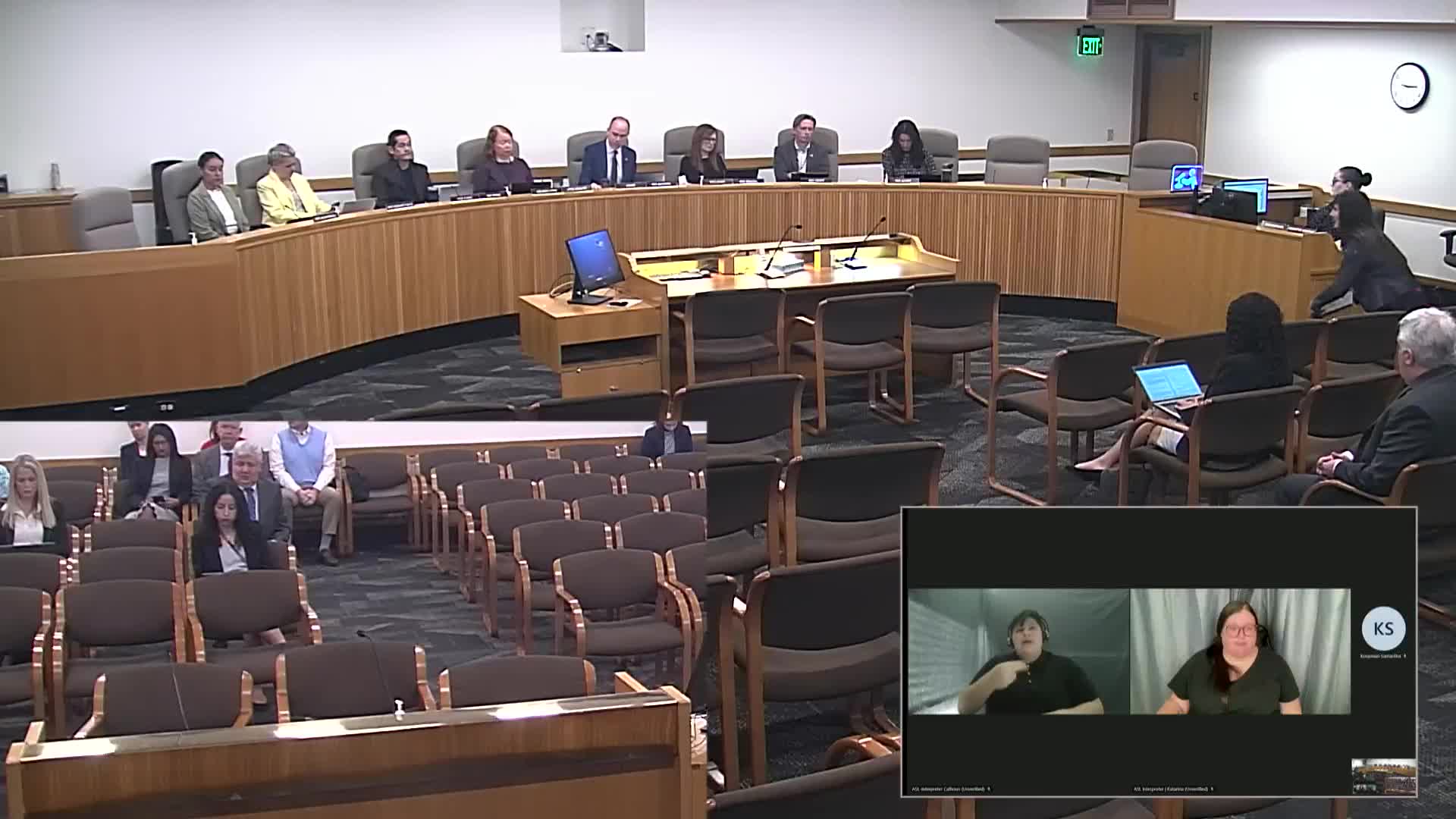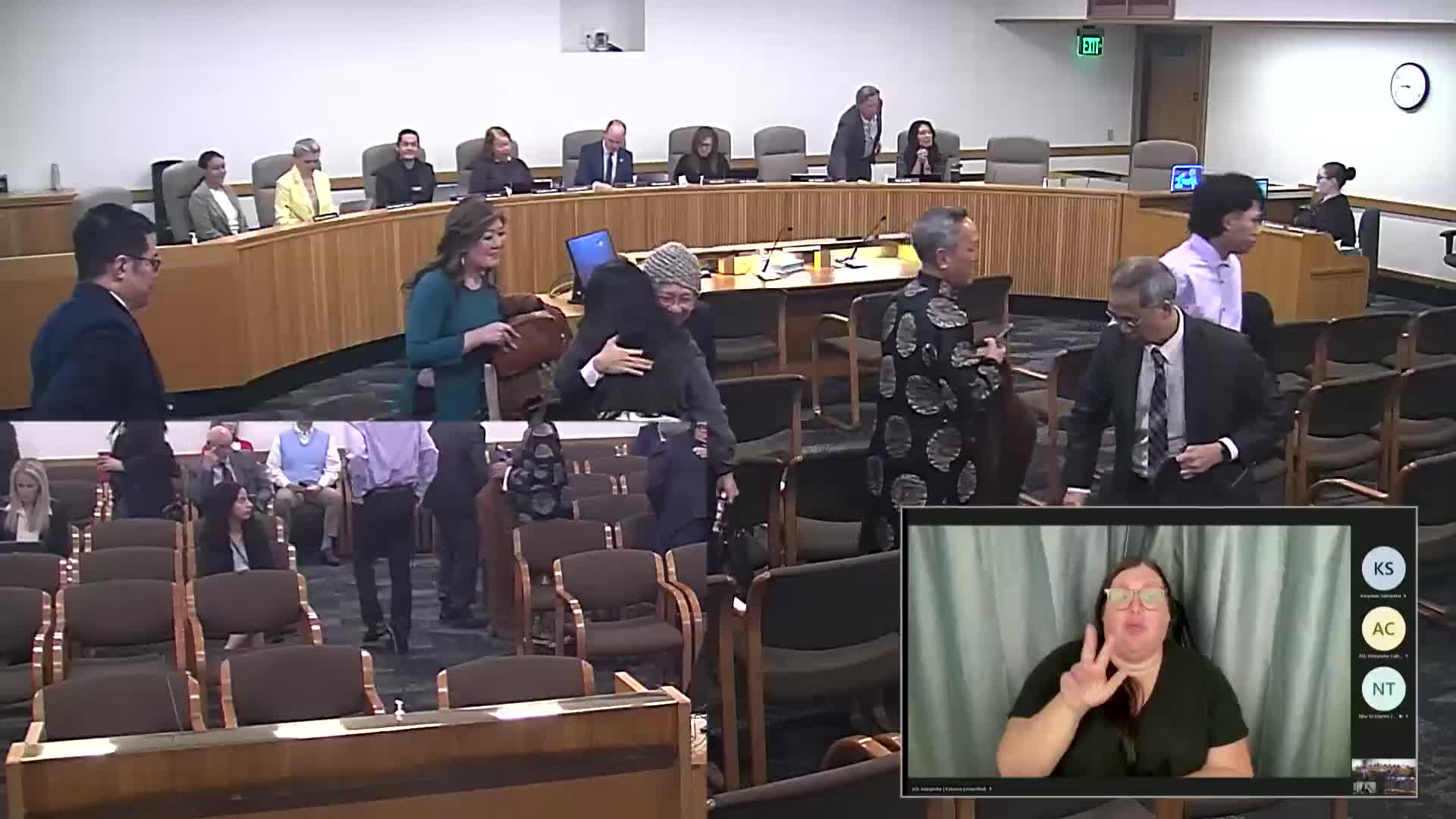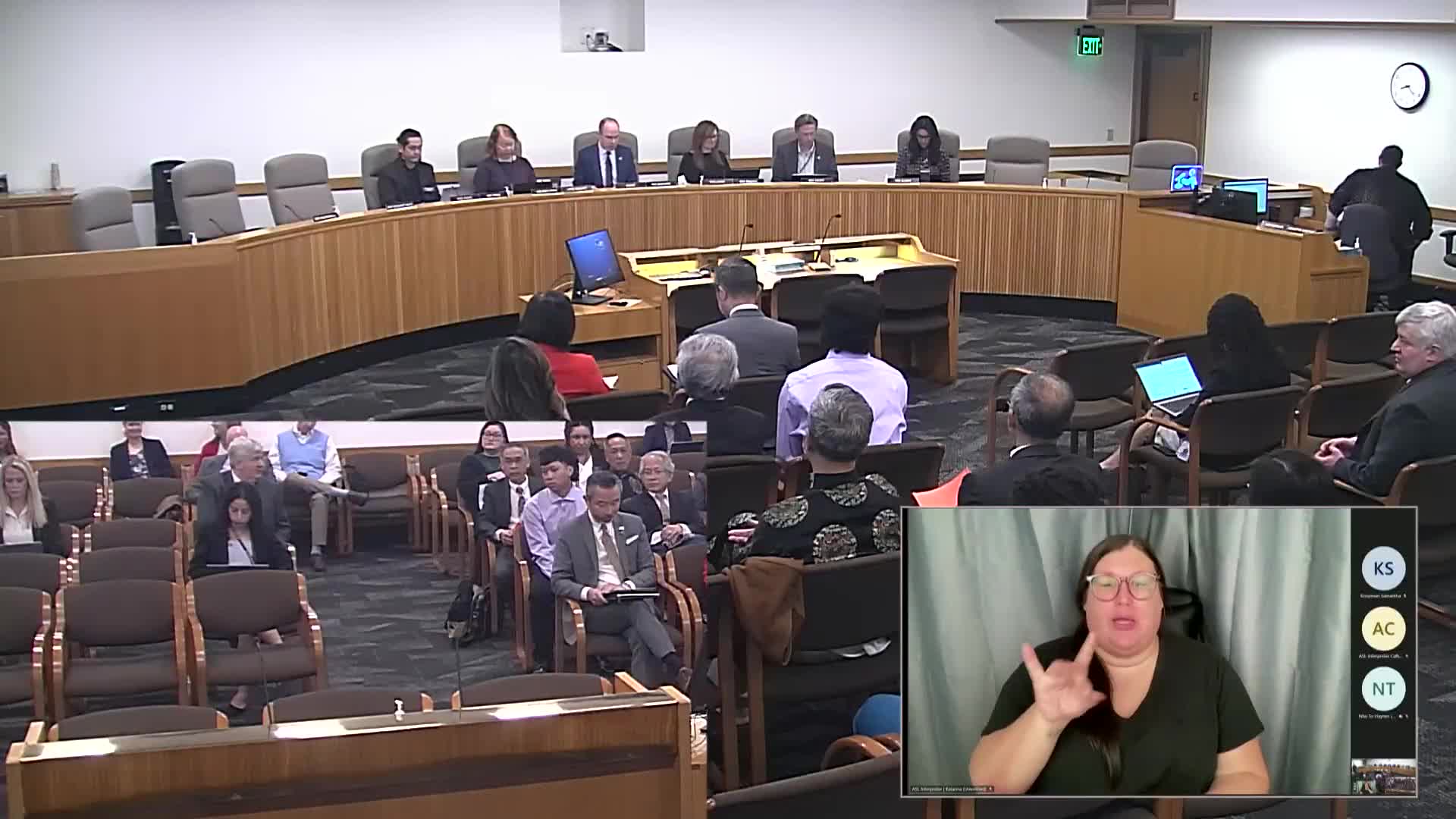Article not found
This article is no longer available. But don't worry—we've gathered other articles that discuss the same topic.

Committee hears bill to define work sessions and require public comment before votes taken in those sessions

Committee weighs bill to require public comment time at public meetings; cities, school boards raise concerns

